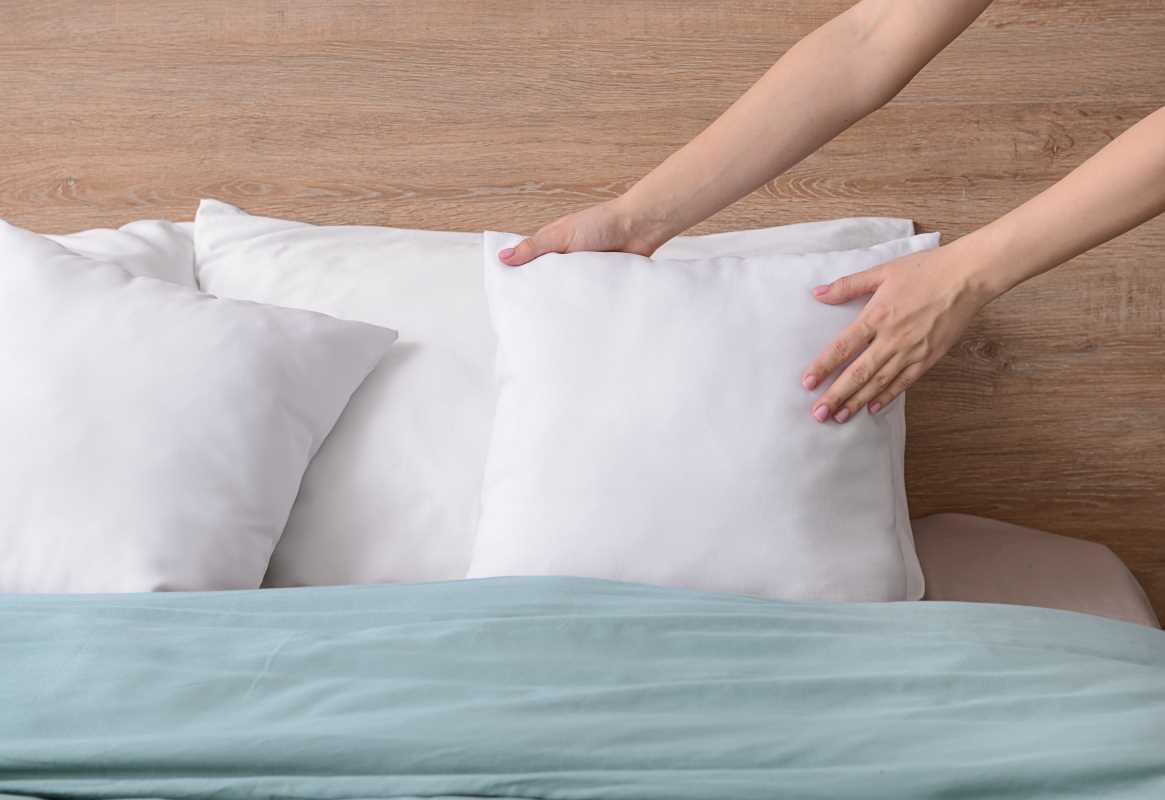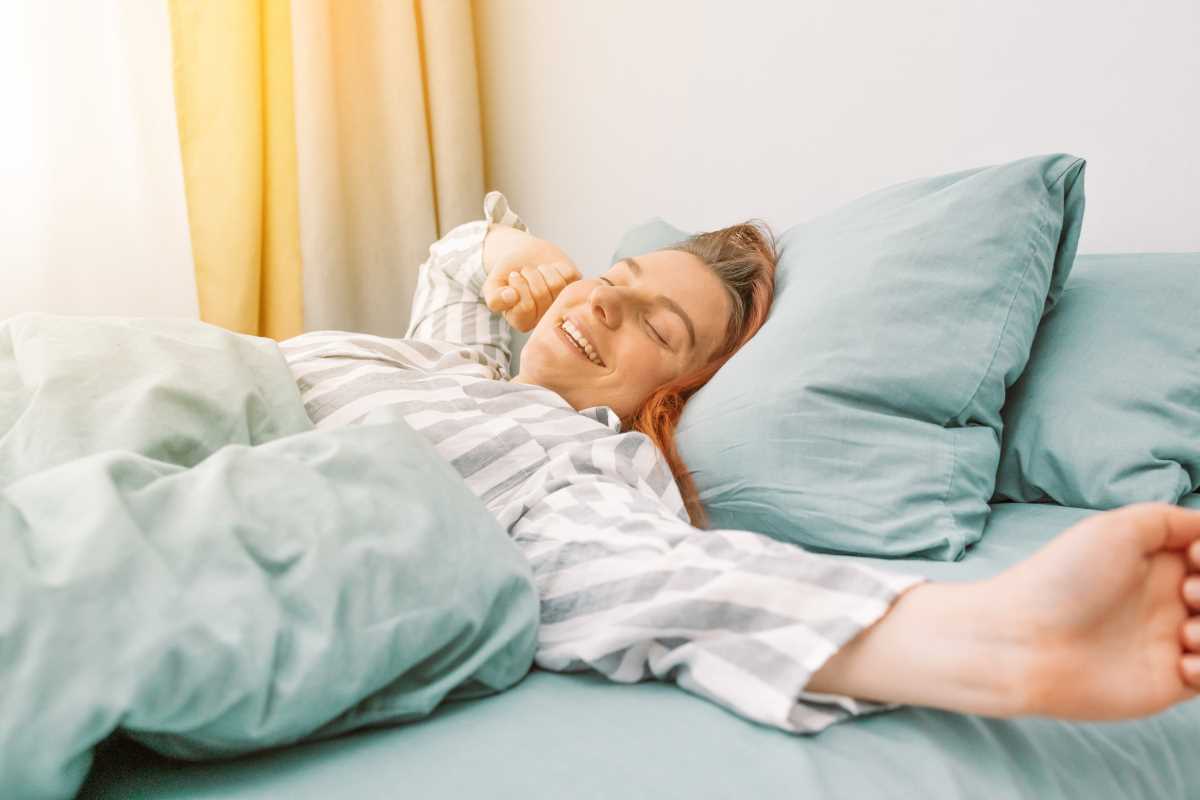A good night’s sleep is essential for maintaining a healthy body and mind, yet so many of us struggle to achieve it. If you’re tossing and turning more than you’re snoozing, it might be time to take a closer look at your sleep habits—or “sleep hygiene.” Sleep hygiene refers to the routines and environment that set the stage for restful slumber. The good news? You don’t need to rely on medication to improve yours. Natural remedies can work wonders in helping you fall asleep faster, sleep deeper, and wake up feeling refreshed. Here are some tips and tricks to get you started.
Create a Sleep-Friendly Environment
Think of your bedroom as your sanctuary, a calm and soothing space conducive to rest. Making a few changes to your environment can have a significant impact on your ability to drift into dreamland.
- Optimize the Room Temperature: Studies show that cooler temperatures are better for sleep. Aim to keep your bedroom between 60–67°F (15–19°C), as this range helps your body regulate its core temperature and stay comfortable throughout the night. If you tend to run warm, consider a cooling mattress pad or breathable bedding. Conversely, if you get cold, layering with blankets can help you cozy up without overheating.
- Reduce Noise: Even small disturbances can interrupt your sleep cycle. Use earplugs to block out noise, or try a white noise machine or fan to drown out unpredictable sounds. Soft, steady background noises can work wonders for creating a calm lull that eases your transition to sleep.
- Use Calming Scents: Certain scents, like lavender and chamomile, are natural relaxants that can help you unwind. Use them in diffusers, pillow sprays, or even scented candles to infuse your room with tranquility. Lavender, in particular, has been shown to improve sleep quality—giving you more time in the restorative, deep sleep stages your body craves.
- Dim the Lights: Light levels matter, too. Keep your bedroom as dark as possible, especially when it’s time to sleep. Blackout curtains are great for blocking outdoor light, and small devices emitting bright lights (like alarm clocks or chargers) should be covered or dimmed. A sleep mask can also help if complete darkness isn’t achievable.
Adopt Healthy Lifestyle Changes
What you do during the day—including the hours leading up to bedtime—can play a big role in how well you sleep. Incorporating certain habits and avoiding sleep deterrents can have a lasting positive effect.
- Stick to a Sleep Schedule: Humans thrive on routine, and this is especially true when it comes to sleep. Going to bed and waking up at the same time every day—even on weekends—helps regulate your internal clock. Consistency trains your body to expect sleep when it’s time, making it easier to fall asleep and wake up naturally.
- Limit Screen Time: The blue light from phones, tablets, and TVs can interfere with your body’s production of melatonin—the hormone that signals it’s time to sleep. To minimize the effect, try turning off all screens at least an hour before bed. If ditching screens altogether feels impractical, use blue light-blocking glasses or enable night mode on your devices.
- Practice Relaxation Techniques: Combat pre-sleep jitters with relaxation exercises that calm your mind and body. Deep breathing, for instance, signals to your nervous system that it’s time to wind down. Try inhaling for a count of four, holding for seven, and exhaling for eight (the 4-7-8 breathing technique).
Meditation is another proven stress reducer. Apps like Headspace and Calm provide guided meditations designed for sleep. Stretching or gentle yoga before bed can also work wonders in relieving tension and quieting a busy mind.
Sip Your Way to Better Sleep
What you consume in the hours before bedtime directly impacts your rest. Avoid large meals, alcohol, and caffeine close to bedtime, as they may disrupt your sleep process. Instead, turn to natural sleep aids in drink form for a soothing nightcap.
- Chamomile Tea - Chamomile is the poster child of sleepy teas and for good reason. Its natural compounds, like apigenin, bind to receptors in your brain that may encourage relaxation and reduce anxiety. A warm mug of chamomile tea before bed is one of the simplest—and tastiest—ways to prep for a good night’s sleep.
- Valerian Root Tea - Another herbal remedy, valerian root tea, has been used for centuries as a natural sleep aid. Its calming properties make it especially useful for those who struggle with insomnia or general restlessness.
- Warm Milk - If your grandmother swore by a glass of warm milk before bed, she was onto something. The tryptophan in milk helps your body produce melatonin, which can promote a peaceful night’s sleep. For added flavor, try sprinkling in some cinnamon or nutmeg.
- Stay Hydrated—but Not Too Much - While it’s important to hydrate throughout the day, avoid drinking too much liquid right before bed to prevent nighttime trips to the bathroom. Aim to finish your fluids at least an hour before you hit the pillow.
Supplements to Enhance Your Sleep
Sometimes, your body just needs a little extra support in the form of supplements to regulate sleep patterns.
- Melatonin - Melatonin is a natural hormone that helps regulate your sleep-wake cycle. While your body produces it on its own, melatonin supplements can help if your sleep pattern is disrupted, like when adjusting to a new time zone or overcoming insomnia. Start with a small dose (1–3mg) about 30 minutes before bed.
- Magnesium - Known for its calming effects, magnesium supports muscle relaxation and alleviates physical tension that may interfere with sleep. Many people find magnesium supplements or body sprays helpful for falling and staying asleep.
- Passionflower - This lesser-known supplement can be found in teas or tinctures. Passionflower is believed to reduce anxiety by boosting GABA levels within your brain—a neurotransmitter that contributes to calmness.
Improving your sleep hygiene is all about discovering what fits best with your lifestyle and bedtime routine. The path to better sleep may take some time and tweaking, but the benefits—a sharper mind, balanced mood, and overall better health—make it well worth the effort. Sweet dreams!







